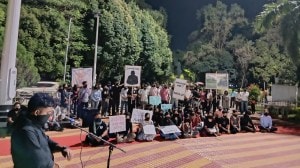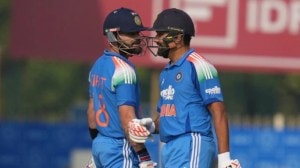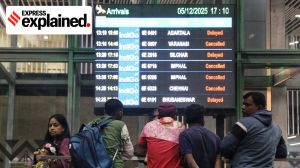The Bards Unread Poems
As the election campaign raged in Uttar Pradesh,in one fraying home off a narrow lane in Badaun,a small town in the western part of the state,time appeared to stand still.
Shakeel Badayunis small library has no takers in his hometown
As the election campaign raged in Uttar Pradesh,in one fraying home off a narrow lane in Badaun,a small town in the western part of the state,time appeared to stand still. In a pink-painted room in the house that poet and Bollywood lyricist Shakeel Badayuni once lived in,black-and-white photographs of Shakeel saab crowd the walls and almirahs are stacked with Urdu and Hindi books of poetry,fiction and the social sciences. Badayunis nephew Mushahid Majeed runs a small library here in his uncles name,open from 8 to 11 am,and then from 6 to 8 pm.
No matter which party rules Lucknow,its the same forgetting,he says. Despite Majeeds efforts,and though a road has been named after him,Badauns most famous son is a perfunctory memory in his hometown. He himself last saw Shakeel saab as a young boy of 8,says Majeed,as he shows off his carefully preserved collection of plastic-encased photographs and letters that Badayuni wrote in green-blue ink to Majeeds father among others.
Badayuni,whose first film was Dard (1947),went on to write the lyrics for nearly a hundred films. He wrote intensely romantic songs,like Pyar kiya to darna kya (Mughal-e-Azam),Mere mehboob tujhe meri mohabbat ki kasam (Mere Mehboob),Chaudvin ka chand ho (Chaudvin Ka Chand) and Kahin deep jale kahin dil (Bees Saal Baad). Unlike his contemporary Sahir Ludhianvi,Shakeel saabs romance was more intimate,less restless or radical.
Leaving Badaun as a young man to work in Delhi,then to Mumbai where he worked for Naushad at a salary of Rs 60 a month,he last came to Badaun in 1961. Shakeel Badayuni died in 1970.
- 01
- 02
- 03
- 04
- 05































